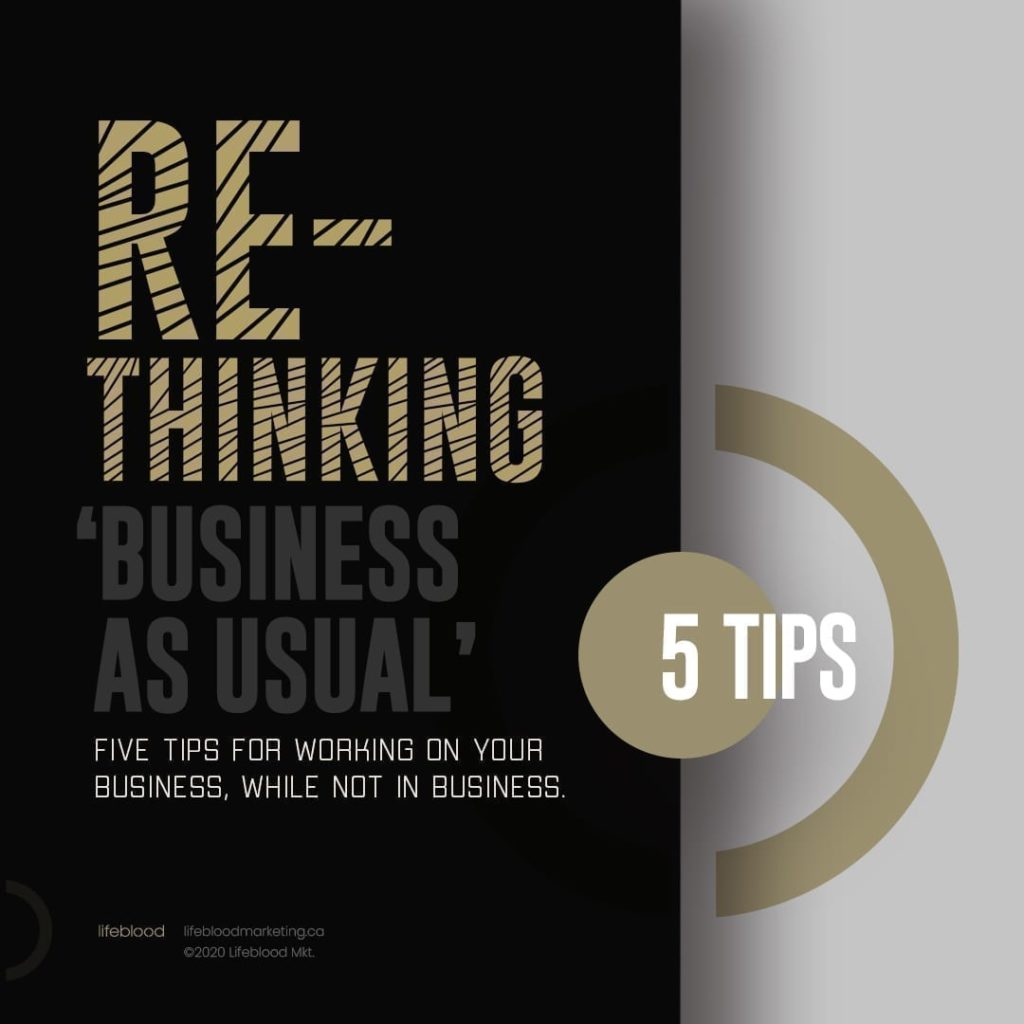Strategy vs. STRATEGY
In the first blog of the 3-part series we offered some basic tips to help you select the right marketing agency. Our Lifeblood Marketing experts are back to give you more insights into what questions you want answered before you make a commitment.
This blog is all about STRATEGY.
Every successful business should have a short- and long-term strategy to ensure every step is in line with how you want your business to grow.
When selecting an agency, it’s crucial to inquire what exactly they mean by “strategy”. You want to ensure that the agency understands and aligns your strategy across your business, not just within marketing.
A quick note before we begin.
The 5 examples below are not the complete list. We’ve selected the most common inquiries we’ve come across in our 20+ years helping businesses grow. If what you’re looking for is not here, we’d love to hear from you and discuss any unique challenges your business might be facing and how to overcome them.
1.
If your business objective is to increase leads and revenue, then your marketing strategy needs to be in alignment with those objectives.
![]()
Make sure the right marketing agency
- Understands who your target audience is.
- Helps you narrow down your ideal target audience if you don’t have one.
- Understands what your 4 Ps are: product, price, place & promotion.
- Understands the sales process and the needs of your sales team.
- Works with sales to understand and analyze your pipeline and sales data to ensure your marketing strategies help grow your sales funnel.
- Helps you narrow down unique features of your business, products or services.
- Analyzes your brand’s awareness among customers in local and/or global market.
- Understands how to increase brand awareness tailored to your market and business features.
- Looks closely to what marketing strategies you’ve used in the past and analyzes successes and failures.
- Analyzes where your potential customers look for your products or services.
- Understands how to reach potential customers through different channels, such as Google Ads, Blogging, Social Media Marketing, Customized Newsletters, and so on.
2.
If you are looking for an agency to help build leads and revenue, ask them if they understand the sales cycle. Do they know how to align marketing campaigns to the sales funnel and build targeted campaigns based on what your pipeline is telling you?
![]() While some of these steps may vary, the sales cycle consists of
While some of these steps may vary, the sales cycle consists of
- Prospecting: find new leads and potential customers.
- Contact: contact your leads and set up an appointment.
- Prospect’s Needs: does your business qualify to meet your prospect’s needs.
- Make an Offer: the most crucial part of the sales cycle where you present yourself, your business and your expertise to the prospect.
- Address Objections: understand the prospect’s concerns (price, timing, etc.) and deal with these appropriately.
- Close the Sale: ask your prospect for the sale.
- Repeat Sales and Referrals: set up a follow-up process, give your client your business card, and inquire about other potential customers they might know.
The most important part of the sales cycle is TIME. It’s important for a business to keep track of how long their sales cycle is to analyze whether it’s efficient.
The right marketing agency can help you
- Understand what your industry’s standard is for a sales cycle.
- Analyze your average sales cycle’s KPIs (Key Performance Indicators) to see where it fits within your industry and where you stand against competitors.
- Understand how various campaigns can improve your sales cycle and find the right campaign for you.
- Help you shorten your sales cycle.
3.
The right agency will help you identify and build out the right marketing and sales processes to ensure you are maximizing your time and investment.
 The marketing process is vital to identify what problems your potential customers face, analyze what market opportunities could come from offering a solution to these problems, and create carefully tailored marketing materials to reach your customers.
The marketing process is vital to identify what problems your potential customers face, analyze what market opportunities could come from offering a solution to these problems, and create carefully tailored marketing materials to reach your customers.
The first step is to understand what your business is about, what’s your mission statement, and conduct a SWOT analysis. Different agencies have different ways to help you with this step.
At Lifeblood Marketing, we send our clients a Brand Identity Questionnaire. Our clients answer questions regarding their business, competitors, their passions and interests, their ideal client, and so on. After we receive and analyze the filled out questionnaire, we set up a meeting with our client, discuss the answers and narrow them down where needed. The questionnaire and the meeting are the initial steps towards beginning to build a marketing process that fits our client’s needs.
The sales process is a set of repeatable steps to convert your prospects into customers. The crucial part of this process is to create an easy to follow roadmap for your sales team.
This goes back to our second point about how crucial it is to understand your business’ sales cycle, align marketing campaigns to the sales funnel and build targeted campaigns based on what your pipeline is telling you.
4.
Today’s Marketing Expert is now also a Technology Expert.
 You might have heard of Marketing Stack before. Marketing stack is the use of different technologies that allow marketers improve their marketing activities. The main idea behind this term is to make a difficult marketing process easier, to manage better spending, and to measure the impact the marketing activities have for the overall business.
You might have heard of Marketing Stack before. Marketing stack is the use of different technologies that allow marketers improve their marketing activities. The main idea behind this term is to make a difficult marketing process easier, to manage better spending, and to measure the impact the marketing activities have for the overall business.
Some examples include
- Engaging with your customers through social media (Facebook Live, Instagram stories, Snapchat).
- Targeting potential customers through Google Ads and Facebook Ads.
- Using tools like Buffer to post across several social media platforms.
- Sending personalized messages using Email Marketing platforms like Mailchimp.
- Creating informative and fun videos featuring your products and team members.
- And so, so, so much more.
![]()
With new softwares popping up almost weekly, it might be a bit intimidating to jump on board and introduce these into your work space. At Lifeblood we don’t shy away from experimenting with these new tech tools, see for ourselves what their pros and cons are, and then use these tools to help our clients grow their business.
The key isn’t to master all the marketing technology. It’s to create a marketing stack that fits your business, your team, and your marketing goals. If a tool can help our team work more efficiently, we will share our knowledge and expertise on this tool with our clients.
Another important point: long gone are the days when only the Chief Information Officer had knowledge of the latest tech tools. Each of our team members has mastered different tools and always keep their eyes open on the latest tech developments. We aren’t masters of it all, but we sure love to try new tools to help us help our clients.
5.
Marketing experts need to be in tune with the rest of the business, including product, customer case, finance, etc.
 The right marketing agency will engage across all departments of your business from a brand, messaging, and communication standpoint.
The right marketing agency will engage across all departments of your business from a brand, messaging, and communication standpoint.
For example, the message you use in your invoicing is usually something that never gets considered. Are you thanking your customers for their business? Is your branding on your invoice in alignment with the company’s branding?
Your invoices are a great cross-sell and upsell opportunity. Include a small blurb on new products coming out or personalize the invoice to promote a product that your customers may not be using.
HR Marketing is also an untapped opportunity for marketing. HR Marketing is a set of activities within a business to attract and retain the top talents for your business needs, and to together build on your business brand.
Some of these activities include, but are not limited to
- Creating a clear and consistent promise about your business and its employees.
- Creating a strong and authentic employer brand to attract talents.
- Aligning your busines’ values and needs with the talents you want to recruit and retain.
- Marketing job opportunities with purpose and meaning.
- Emphasizing the importance your business places on training internal employees.
The third blog of our 3-part series on How to Choose the Right Marketing Agency will discuss the importance of building a strong marketing plan before rushing right to tactics. Our in-house experts will give you more insights on how to make sure that the marketing agency creates a marketing plan that stems from your business plan.
Did you find these 5 examples helpful? If you’re ready for success but have a few more questions, our expert staff at Lifeblood Marketing will be more than happy to answer your questions.










